
-
Acetamiprid
Insecticide and acaricide with contact and stomach action. Control of motile stages of mites, leaf miners, suckers, Colorado beetles, etc.Tags : Reliable supplier Acetamiprid Broad-spectrum Acetamiprid High-effective Acetamiprid
-
6-Benzylaminopurine Cytokinins 6-BAP
6-Benzylaminopurine is a broad- spectrum plant growth regulator. It can accelerate growth of cell. When used with gibberellins, fruit’s shape can be improved. 6-Benzylaminopurine stimulates the following effects: cell division; lateral bud emergence (apples, oranges); basal shoot formation (roses, orchids); flowering (cyclamen, cacti); fruit set (grapes, oranges, melons).Tags : broad- spectrum 6-Benzylaminopurine High quality 6-Benzylaminopurine long shelf 6-Benzylaminopurine
-
Acetamiprid 97% TC 5% EC 5% WP 20% WP
Acetamiprid as a new type of quasi neonicotinoid efficient broad-spectrum pesticides, for pests and have tag and stomach poison effect, and have strong osmosis, the drug for citrus aphid has good control effect. -
Chlorpyrifos 97%TC
Chlorpyrifos CAS No 2921-88-2 Product Name Chlorpyrifos Function Insecticide Specification 97%TC Chemical Name O,O-diethyl O-(3,5,6-trichloro-2-pyridinyl) phosphorothioate CAS No. 2921-88-2 Empirical Formula C9H11Cl3NO3PS Toxicology Oral Acute oral LD50 for rats 135-163, guinea pigs 504, rabbits 1000-2000 mg/kg. Skin and eye Acute percutaneous LD50 for rabbits >5000 mg/kg; (tech.) for rats >2000 mg/kg. Inhalation LC50 (4-6 h) for rats >0.2 mg/l (14 ppb). NOEL (2 y) for rats 1 mg/kg b.w. daily; (18 mo) for mice 0.7 mg/kg b.w. daily; (2 y) for dogs 1 mg/kg b.w. daily. ADI (JMPR) 0.01 mg/kg b.w. [1999]. Other Non-teratogenic. Toxicity class WHO (a.i.) II Applications Mode of action Non-systemic insecticide with contact, stomach, and respiratory action. Uses Control of Coleoptera, Diptera, Homoptera and Lepidoptera in soil or on foliage in over 100 crops, including pome fruit, stone fruit, citrus fruit, nut crops, strawberries, figs, bananas, vines, vegetables, potatoes, beet, tobacco, soya beans, sunflowers, sweet potatoes, peanuts, rice, cotton, alfalfa, cereals, maize, sorghum, asparagus, glasshouse and outdoor ornamentals, turf, and in forestry. Also used for control of household pests (Blattellidae, Muscidae, Isoptera), mosquitoes (larvae and adults) and in animal houses. Phytotoxicity Non-phytotoxic to most plant species when used as recommended. Poinsettias, azaleas, camellias, and roses may be injured. Package 200KG/Drum, 200L/Drun,5L/Drum, etcTags : Chlorpyrifos 40%EC Chlorpyrifos 48%EC CAS No: 2921-88-2 Insecticidal spectrum Chlorpyrifos 97%TC
-
Acetamiprid 97% TC 5% EC 5% WP 20% WP
Acetamiprid as a new type of quasi neonicotinoid efficient broad-spectrum pesticides, for pests and have tag and stomach poison effect, and have strong osmosis, the drug for citrus aphid has good control effect.Tags : 5% EC 5% WP 20% WP
-
Albendazole CAS NO.: 54965-21-8
Name: Albendazole CAS No.: 54965-21-8 Appearance: white to light yellow crystalline powder Molecular formula: C12H15N3O2S Molecular Weight: 265.3314 Melting point: 207 to 211 ℃ (decomposition) Density: 1.26 g/cm³ Main indications: high-efficiency broad-spectrum anthelmintic new drug Water solubility: slightly soluble in organic solvents, insoluble in water Molecular structure:Tags : Albendazole 54965-21-8 Albendazole suspension METHYL ESTER anthelmintic High-efficiency broad-spectrum anthelmintic
-
Albendazole
Albendazole CAS NO.: 54965-21-8 Appearance: white to light yellow crystalline powder Molecular formula: C12H15N3O2S Molecular Weight: 265.3314 Melting point: 207 to 211 ℃ Density: 1.26 g/cm³ Water solubility: slightly soluble in organic solvents, insoluble in water Molecular structure: Description: Albendazole is an imidazole derivative broad-spectrum anthelmintic drug. Discovered in 1972 by the animal health laboratory of GlaxoSmithKline. Albendazole has been included in the World Health Organization Model List of Essential Medicines and is one of the most important essential health medicines. Scope of application The high-efficiency broad-spectrum anthelmintic is one of the benzimidazoles with a broad anthelmintic spectrum and the strongest insecticidal effect. It is suitable for expelling roundworms, pinworms, hookworms, whipworms, treating various types of cysticercosis, and can also be used for deworming livestock.Tags : CAS 54965-21-8 hookworms whipworms
-
Broad spectrum anthelmintic
Albendazole CAS NO.: 54965-21-8 Appearance: white to light yellow crystalline powder Molecular formula: C12H15N3O2S Molecular Weight: 265.3314 Melting point: 207 to 211 ℃ (decomposition) Density: 1.26 g/cm³ Main indications: high-efficiency broad-spectrum anthelmintic new drug Water solubility: slightly soluble in organic solvents, insoluble in water Molecular structure: Description: Albendazole is a broad-spectrum anthelmintic with high efficacy and low toxicity. Clinically, it can be used to drive roundworms, pinworms, tapeworms, whipworms, hookworms, strongyloides, etc. After being metabolized to sulfoxide or sulfone in the body, it inhibits the parasite's absorption of glucose, leading to the depletion of glycogen in the parasite, or inhibits the fumarate reductase system, hindering the production of ATP, making the parasite unable to survive and reproduce. -
Albendazole Anthelmintic
Albendazole CAS NO.: 54965-21-8 Name: Albendazole CAS No.: 54965-21-8 Appearance: white to light yellow crystalline powder Molecular formula: C12H15N3O2S Molecular Weight: 265.3314 Melting point: 207 to 211 ℃ (decomposition) Density: 1.26 g/cm³ Main indications: high-efficiency broad-spectrum anthelmintic new drug Water solubility: slightly soluble in organic solvents, insoluble in water Molecular structure: Scope of application Albendazole is a new high-efficiency broad-spectrum anthelmintic drug. It is highly active against nematodes, schistosomes and tapeworms, and has a significant inhibitory effect on egg development. Albendazole is used to treat parasites, but not insects. Albendazole also has obvious expelling effect on various nematodes, schistosomes, tapeworms and cysticercosis parasitic on animals. It is suitable for expelling roundworms, pinworms, hookworms, whipworms, and also for deworming livestock.Tags : Albendazole Anthelmintic
-
Albendazole Raw Materials
Albendazole CAS NO.: 54965-21-8 Name: Albendazole CAS No.: 54965-21-8 Appearance: white to light yellow crystalline powder Molecular formula: C12H15N3O2S Molecular Weight: 265.3314 Melting point: 207 to 211 ℃ (decomposition) Density: 1.26 g/cm³ Main indications: high-efficiency broad-spectrum anthelmintic new drug Water solubility: slightly soluble in organic solvents, insoluble in water Molecular structure: Albendazole is a broad-spectrum thiabendazole anthelmintic. It can be used for both human and veterinary purposes. It can inhibit the growth and reproduction of parasites. As a result, the worms cannot take in the sugar they depend on for survival, depleting the endogenous glycogen in the worms, and inhibiting the fumarate reductase system, preventing the production of adenosine triphosphate, making the worms unable to survive and reproduce. die. Albendazole has the effect of completely killing hookworm eggs and whipworm eggs and partially killing roundworm eggs. It can also kill and expel various nematodes parasitic in animals. and expulsion. Indicated for the treatment of hydatid (hydatid) and nervous system infections (cysticercosis) caused by threadworms in pork, also for the treatment of hookworms, roundworms, pinworms, trichinella, tapeworms, whipworms and roundworms Nematode disease.Tags : Albendazole Raw Materials Albendazole 54965-21-8 Albendazole CAS Albendazole
 call us :
call us :  send a message :
send a message : 









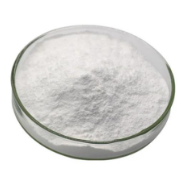
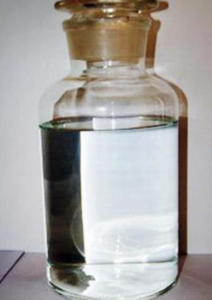
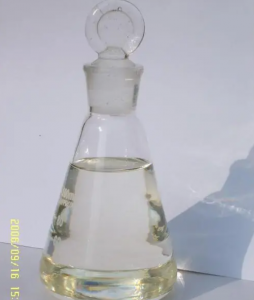
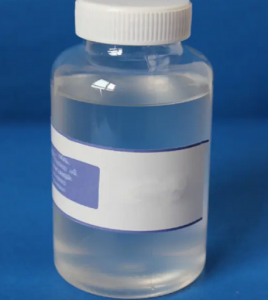
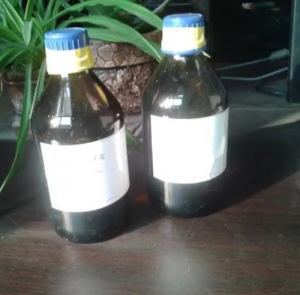
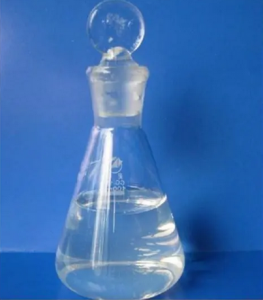













 online service
online service +8613866722531
+8613866722531

 +8613866722531
+8613866722531